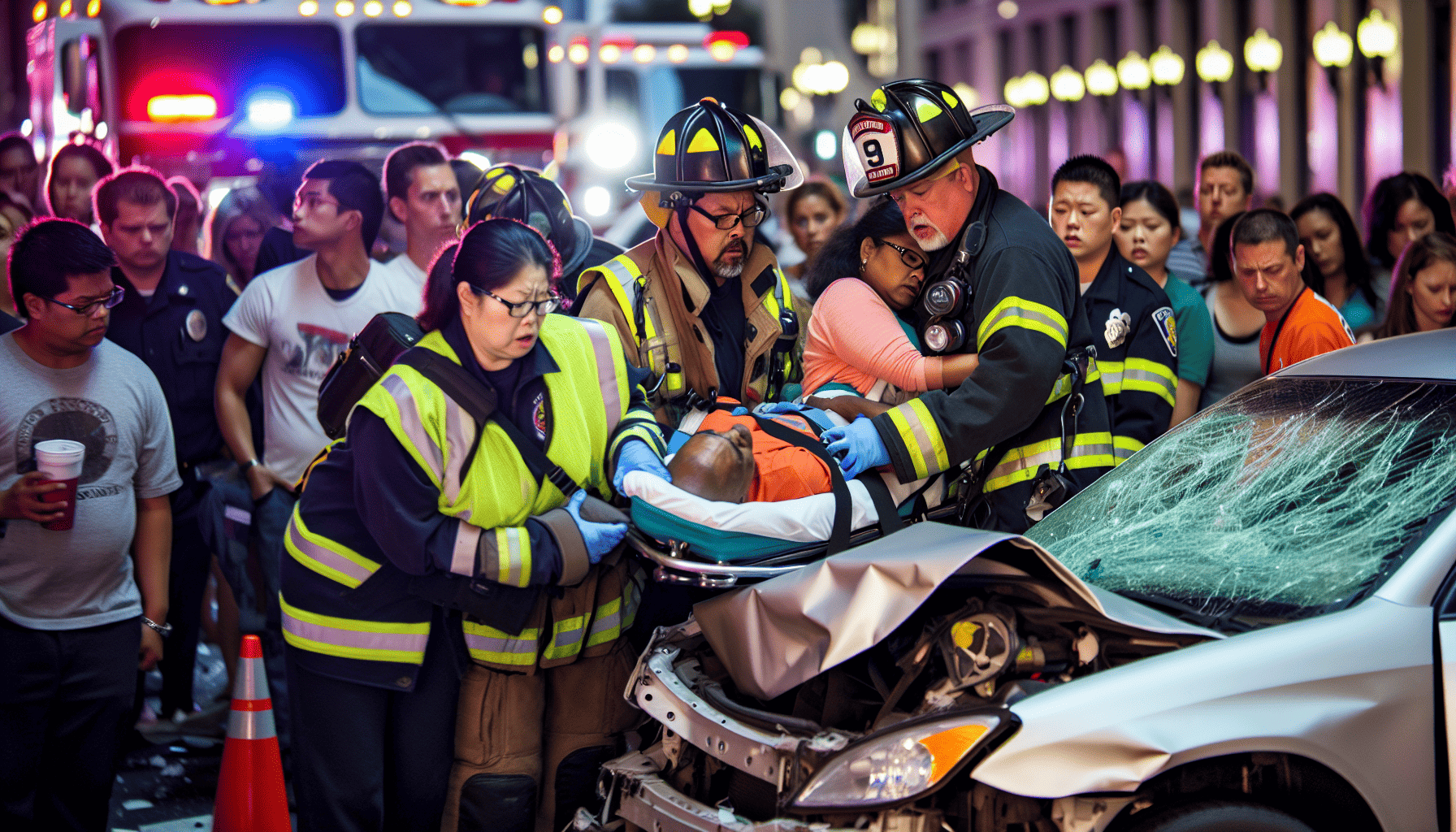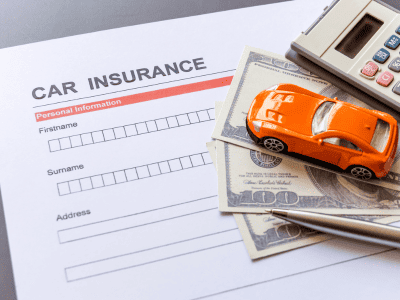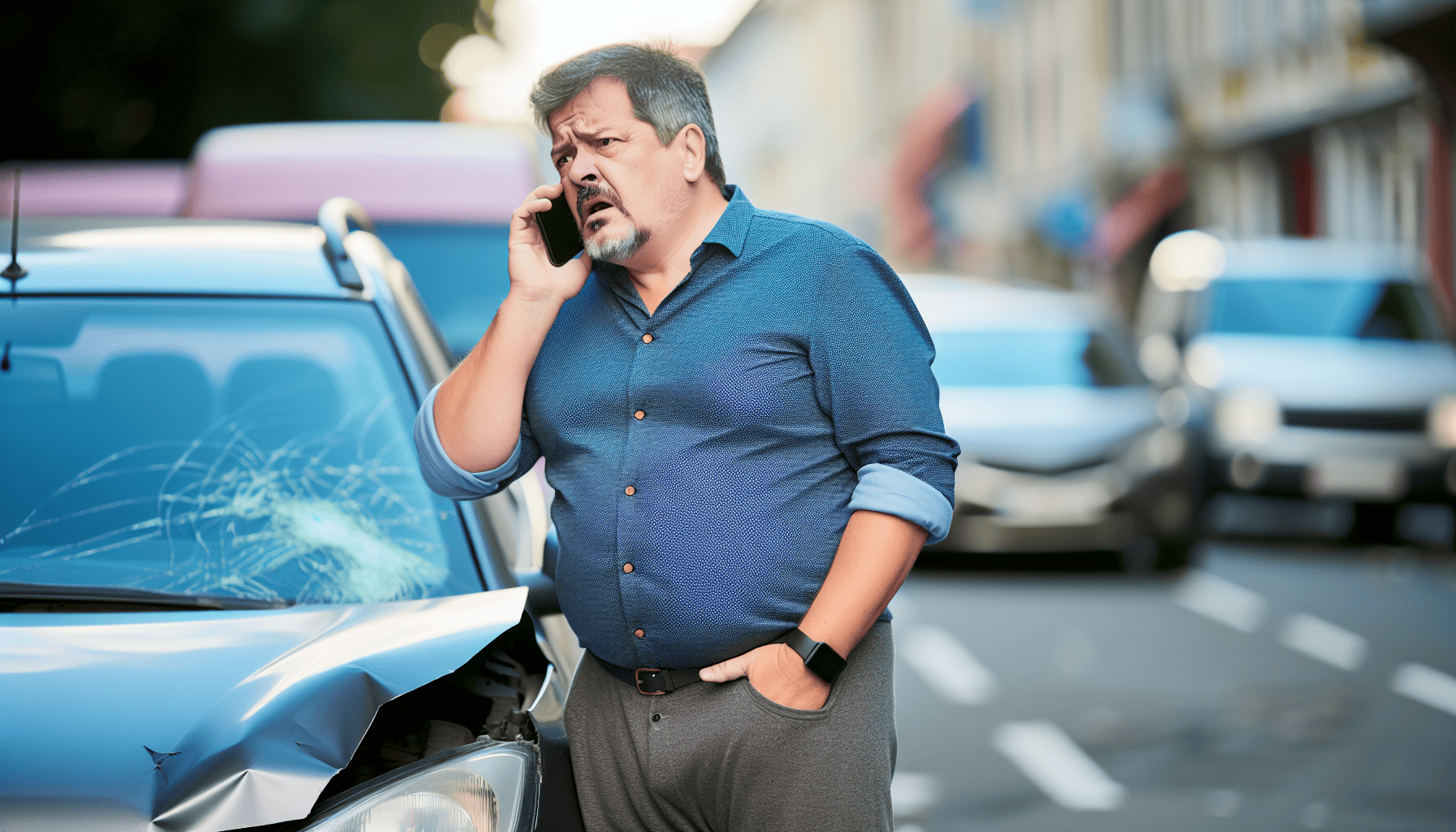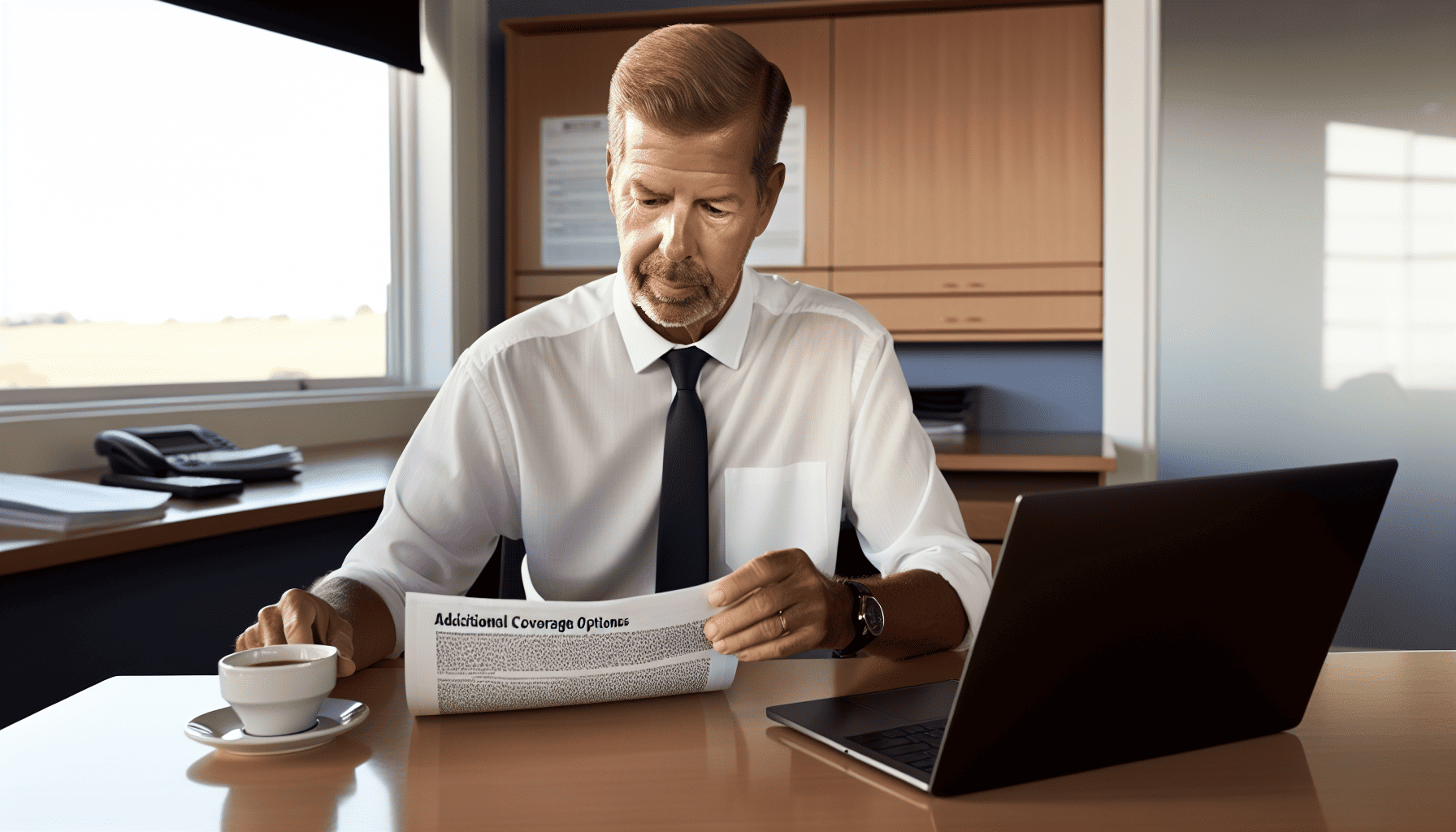What to do when hit by an uninsured driver? Acting swiftly and knowledgeably can mitigate the stress and impact of the collision. This guide provides immediate steps to take, offers a breakdown of insurance coverage options, and prepares you for the legal journey ahead, focusing on what to do when hit by an unisured motorist without overwhelming you with jargon or complexity.
Key Takeaways
- Immediately after an accident with an uninsured motorist, prioritize safety, seek medical attention, call the police, and gather evidence, avoiding confrontations about insurance details.
- Understand your insurance options like uninsured motorist coverage (UMC), underinsured motorist coverage (UIM), collision coverage, and Medical Payment coverage to navigate financial implications post-accident.
- Promptly report the accident to your insurer, consider consulting a lawyer for complex uninsured motorist claims, and regularly review and update your insurance coverage to protect against future uninsured incidents.
Immediate Steps After an Accident with an Uninsured Driver
When the unexpected happens, like a car accident with an uninsured driver, your initial reactions can significantly impact the outcome of the situation. Safety should be your utmost priority, followed by assessing injuries, contacting the police, and gathering all necessary evidence and information.
Let’s break these steps down in the following subsections.
Ensure Safety and Assess Injuries
Assessing the well-being of all passengers in both vehicles safely is a high priority in the immediate aftermath of an accident. If there is any doubt about an individual’s health or if anyone complains of pain, call for medical assistance promptly as a precaution.
Prompt medical attention is necessary to document all injuries, which aids in any subsequent claims process.
Call the Police
The presence of police at the accident scene is beneficial for several reasons:
- Investigating the accident’s cause
- Securing the scene
- Collecting information
- Conducting sobriety checks
- Gathering witness statements
- Providing essential medical care
Staying at the scene until the arrival of the police guarantees a reporting process based on factual evidence, free from speculation.
Gather Evidence and Information
In insurance claims and potential lawsuits after an accident, evidence is of paramount importance. This includes the contact and vehicle information of the other driver, photographs of the accident scene, and witness testimonies. During this process, avoid discussions about insurance details with the other driver to prevent disputes or confrontations.
Understanding Your Insurance Coverage Options
Being hit by an uninsured or underinsured driver can be a daunting experience. However, understanding your insurance coverage options can help you navigate this ordeal. Let’s delve deeper into some essential insurance coverage options:
- Uninsured motorist coverage
- Underinsured motorist coverage
- Collision coverage
- Medical Payment coverage
Uninsured Motorist Coverage
Uninsured Motorist Coverage (UM) is a type of insurance coverage that provides protection if you are in an accident with a driver who does not have any liability insurance. This coverage is designed to cover medical bills, lost wages, and even pain and suffering, up to your policy limits. In such cases, you may need to file an uninsured motorist claim to receive compensation. To better understand how uninsured motorist coverage work, it’s essential to be familiar with the process of filing a claim and the benefits it provides.
Remember, this coverage is also applicable if you’re involved in a hit and run accident or a hit-and-run incident.
Underinsured Motorist Coverage
Underinsured Motorist Coverage (UIM) is activated when you are in an accident with a driver whose liability limits are insufficient to cover the damage or medical expenses. This coverage aims to bridge the gap between what the at-fault driver’s insurance can pay and the total amount of damages. It specifically addresses expenses such as medical bills, lost wages, and compensation for pain and suffering.
Medical Payment Coverage
Medical Payment coverage, often abbreviated as MedPay, is an important aspect of auto insurance in the State of Georgia. This coverage is designed to pay for medical expenses incurred by the policyholder and any passengers in the vehicle, regardless of who is at fault in an auto accident. MedPay can be particularly beneficial as it covers medical bills up to the limit of the policy, providing financial relief for treatments that may be necessary after an accident. This coverage is optional in Georgia, allowing policyholders to choose whether to include it in their auto insurance plan. It’s a valuable addition for those seeking extra protection against medical expenses arising from vehicular accidents.
Reporting the Accident to Your Insurance Company
Once the immediate aftermath of the accident is handled, it’s time to report the accident to your insurance company. Prompt reporting leads to swifter action by the insurer and enables a more thorough investigation into third-party responsibilities.
Let’s look at the importance of timely reporting and the potential repercussions of delayed reporting.
Timely Reporting
It is imperative to report an accident to your insurance company promptly. In fact, contacting them within a day or two of the accident is typically considered ‘prompt’ reporting. By reporting claims promptly, insurance companies are afforded more time to investigate and address potential fraudulent claims.
Potential Claim Denial
Conversely, not reporting an accident promptly can have serious consequences. One of the most common reasons for claim denial is the failure to report the claim in a timely manner. This could result in your policy being canceled or the insurance company refusing to pay the claim.
Navigating Legal Options Against Uninsured Drivers
Dealing with an uninsured driver can be legally challenging. While filing a lawsuit against an uninsured driver is possible, enforcing and collecting a judgment can be an uphill battle.
Let’s look at the feasibility of a lawsuit and the process of collecting judgments.
Lawsuit Feasibility
The feasibility of suing an uninsured driver depends largely on their financial resources. If the uninsured driver lacks sufficient financial resources, suing might not result in compensation. However, if they have substantial assets or other insurance policies, taking legal action could be a feasible option.
Collecting Judgments
Collecting a judgment from an uninsured driver can be a complex process. Legal mechanisms such as wage garnishment, liens on property, or seizure and sale of assets are available. However, the effectiveness of these efforts is contingent upon the defendant having non-exempt assets that can be pursued.
Protecting Yourself from Future Uninsured Motorist Accidents
While you cannot control the actions of other motorists, you can take steps to protect yourself from future accidents involving uninsured drivers. Regularly reviewing your auto insurance policy and considering additional coverage options can offer protection against future uninsured motorist accidents.
Regularly Review Your Insurance Policy
To ensure your policy meets your current needs and covers potential risks, it is advisable to review it regularly with your own insurance company. Changes in your family situation, employment status, or housing situation can impact your insurance needs, so it’s important to keep your policy up-to-date.
Consider Additional Coverage Options
For enhanced protection against uninsured or underinsured motorists, you might want to think about additional car insurance coverage options.
Uninsured Motorist Property Damage (UMPD) coverage is a crucial component of auto insurance in many states, including Georgia. This coverage comes into play when you are involved in an accident with a driver who is either uninsured or underinsured and is found to be at fault. UMPD covers the repair or replacement costs of your vehicle and other property damaged in the accident. In Georgia, while this coverage is not mandatory, it is highly recommended, as it provides financial protection against damages caused by drivers who lack sufficient insurance to cover the costs. UMPD ensures that you are not left with significant out-of-pocket expenses for vehicle repairs or replacement due to someone else’s lack of coverage.
Penalties and Consequences for Uninsured Drivers
Not only is driving without insurance irresponsible, but it’s also illegal. Uninsured drivers face penalties such as fines, license suspension, registration suspension, and even jail time.
Let’s delve deeper into these penalties.
Fines and License Suspension
In many states, including Georgia, the penalties for driving without insurance can be quite severe. The consequences include:
- Fines ranging from $200 to $1,000
- Immediate suspension of your license for a lapse in insurance coverage
- Increased suspension period for recurring offenses
- 90-day suspension for a third offense
It is important to ensure that you have proper insurance coverage to avoid these penalties.
Criminal Charges
Uninsured drivers can also face criminal charges if they do or don’t cause injury or death in an accident. Civil liability may make them personally responsible for all damages, including medical expenses, lost wages, and other injury-related costs incurred by the victim(s). Depending on the circumstances, charges might include vehicular assault or, in more severe cases, vehicular homicide.
When to Consult a Lawyer
Dealing with an uninsured motorist accident can be complex, and you may wonder when to consult a lawyer. An experienced car accident lawyer can assist with:
- Gathering evidence
- Negotiating with insurance companies
- Handling legal proceedings
- Determining the best legal course
- Holding negligent drivers accountable
Assessing the Need for Legal Representation
A lawyer can assist in navigating the complexities of uninsured motorist claims and help determine the best approach. They can:
- Investigate the uninsured driver’s financial status
- Obtain affidavits of coverage from the insurance company to verify the at-fault driver’s insurance status under oath
- Provide guidance through the process
Maximizing Your Payout
To maximize compensation, it’s important to consult with a lawyer, who can:
- Identify all liable parties
- Ensure clients receive all benefits available under their uninsured motorist coverage
- Identify various sources of recovery
- Clarify different insurance policies
- Manage personal injury claims
- Consider the role of health insurance coverage in compensating for medical expenses.
Summary
Navigating an accident with an uninsured driver can be overwhelming. Yet, with the right knowledge and steps, you can handle the situation effectively. The importance of safety, evidence gathering, understanding your insurance coverage, timely reporting to your insurance company, and the potential of legal actions are all vital aspects to consider. Protecting yourself from future accidents and understanding the penalties that uninsured drivers face can also be crucial. Remember, consulting with a lawyer can help maximize your payout and provide necessary guidance through the process.
Frequently Asked Questions
What happens when an uninsured driver hits you in GA?
When an uninsured driver hits you in Georgia, the situation can become legally and financially complex. Georgia is a fault state, meaning the driver who is at fault for the accident is responsible for covering the damages. However, if that driver is uninsured, they may not have the financial means to pay for your damages. In such cases, your own insurance may come into play, particularly if you have uninsured motorist (UM) coverage. This coverage is optional in Georgia but highly recommended. It can help cover your medical bills, car repairs, and other losses. Without UM coverage, you might have to sue the uninsured driver to recover damages, but this can be a lengthy and uncertain process, especially if the at-fault driver lacks sufficient assets. Additionally, Georgia law allows for the suspension of the uninsured driver’s license, adding a legal consequence for driving without insurance.
What does uninsured motorist coverage, cover in GA?
In Georgia, uninsured motorist (UM) coverage is designed to protect you financially if you’re involved in an accident with a driver who either lacks insurance or is underinsured. This coverage typically includes two main components: Uninsured Motorist Bodily Injury (UMBI) and Uninsured Motorist Property Damage (UMPD). UMBI covers medical expenses, lost wages, and other injury-related losses for you and your passengers if injured in an accident caused by an uninsured or hit-and-run driver. UMPD, on the other hand, helps pay for repairs to your vehicle or property damage resulting from such an accident. It’s important to note that while UM coverage is optional in Georgia, it offers a crucial safety net, ensuring that you’re not left financially vulnerable after an accident with an uninsured driver.
Does an uninsured motorist claim raise my rates in Georgia?
Georgia law specifically prohibits insurance companies raising rates for accidents for which you are not at-fault, as such, your rates are less likely to increase. Insurance companies typically raise rates based on the perceived risk of the driver, and a claim against your uninsured motorist coverage due to an accident caused by another driver typically does not reflect increased risk on your part. However, insurance policies and practices can vary, so it’s important to check with your specific insurer to understand how an uninsured motorist claim might affect your premiums.
What should I do immediately after an accident with an uninsured driver?
After an accident with an uninsured driver, ensure everyone’s safety, assess injuries, call the police, and gather evidence and information to support your claim.
What is Uninsured Motorist Coverage?
Uninsured motorist coverage offers financial protection in the event that you are involved in an accident with a driver who lacks liability insurance, assisting in covering your costs under these circumstances.





